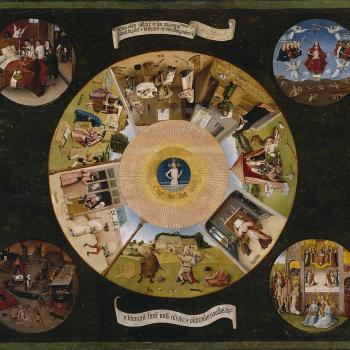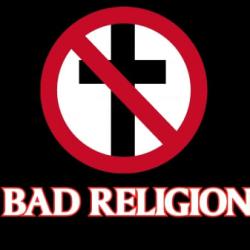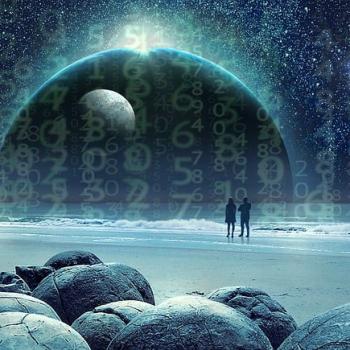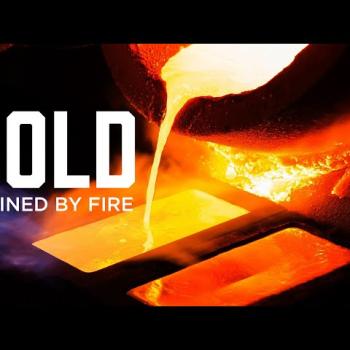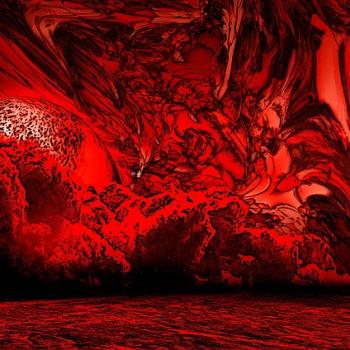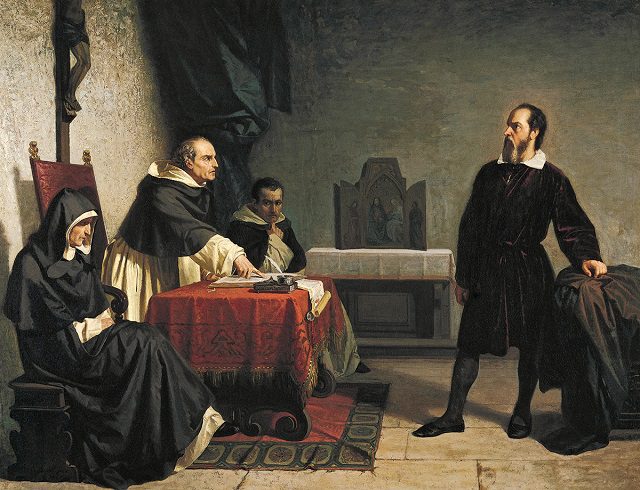
These two exchanges occurred underneath existing blog articles of mine. The rabidly anti-Catholic traxxion (words in blue below) was replying under an article of mine about how many anti-Catholic Protestant polemicists are young earth creationists. (words in green) replied underneath my purely theological / biblical piece, “Soul Sleep”: A Thorough Biblical Refutation.
*****
Galileo: The Myths and the Facts [5-11-06]
Why the Galileo Case Doesn’t Disprove Catholic Infallibility (vs. Ken Temple and Eric G.) [5-18-06]
Dialogue on the Galileo Fiasco and the State of Scientific and Astronomical Knowledge in 1633 (vs. Eric G.) [5-13-06]
Richard Dawkins & Double Standards of the “Religion vs. Science” Mentality / Galileo Redux [3-20-08]
The Galileo Fiasco & Catholic Infallibility (vs. Jon Curry) [8-11-10]
So again Galileo, supposing he began (I have no reason for implying or thinking he did, but supposing he began) with doubting the received doctrine about the centrality of the earth, I think he would have been defective in religiousness; but not defective in faith, (unless indeed by chance he erroneously thought that the centrality had been defined). On the other hand, when he saw good reasons for doubting it, it was very fair to ask, and implied no irreligiousness,—”After all, is it defined?” and then, on inquiry, he would have found liberty of thought “in possession,” and would both by right and with piety doubt of the earth’s centrality. (Letter to Edward B. Pusey, 23 March 1867; cited in Wilfred Ward, The Life of John Henry Cardinal Newman [two volumes: London: Longmans, Green, and Co., 1912], vol. 2, 221; my italics and bolding)
When you flatly deny consciousness after death, of course the premise of that is that there is no such thing as a soul, and beyond that, no spirit; only matter. That’s one philosophical opinion, but it’s not the only one, and it’s certainly not proven beyond any doubt whatever, so that no rational inquirer can possibly deny it.
As you must know, many — if not most of the — important philosophers throughout history have been dualists and theists, rather than materialists. So it’s not simply “blind faith.” The existence of a soul, the afterlife, and God can be argued for strictly on a philosophical / non-religious basis, and has been defended by many brilliant, dazzling minds.
Secondly, I would contend that when you say “utterly incompatible” you overstep your own epistemological boundaries: the limits of your own chosen worldview. You can say that consciousness after death has nothing to do with science, and I would enthusiastically agree. It cannot, by definition, because science (essentially applied empirical philosophy) deals with matter. Therefore, it has nothing to tell us about things like souls and spirit, which are irrelevant or nonexistent categories within its purview.
By the same token, however, because it cannot speak to those things, it also follows logically that it cannot rule them out from its own perspective. You can no more say, “science has disproven the existence of souls” than we can say, “religion has disproven the theory of evolution.” Both are impermissible, because they are serious category mistakes at the presuppositional level.
You also go way too far in insinuating that any religion that believes in consciousness after death (i.e., immortality of souls), must do so only by faith (false: we can also enlist dualist philosophy), and must be “utterly incompatible with evidence-based science”. The latter is also a false statement, based on what I have already stated: it’s like comparing apples and oranges or a fish to a bicycle.
Christianity is not only not intrinsically opposed to science; it was crucial and virtually necessary to the beginning of modern science. See also: Christians or Theists Founded 115 Scientific Fields.
And we can bring much reason to the defense of our views, not just “faith.” That’s what the theistic proofs are about. You may disagree with them, but they are specimens of philosophical reasoning; not just faith.
Lastly, you flatly deny that atheism is a religion. Typically, as an atheist, you seem to think that science is the be-all and end-all of all knowledge (clearly and unarguably false), that it is based only on evidence (false: it necessarily entails mathematics and logic: both of which include unprovable and non-empirical starting axioms), and that atheism entails no acceptance of unprovable axioms. The latter is also spectacularly false, as I think I demonstrated rather conclusively in my paper: Atheism: the Faith of “Atomism”.
I’d be happy to discuss any of these things at length. As it is, I will now make a new blog paper of this exchange. I’ll post it here when I’m done.





